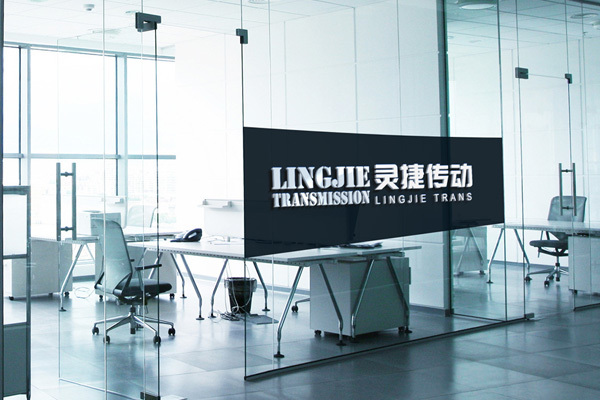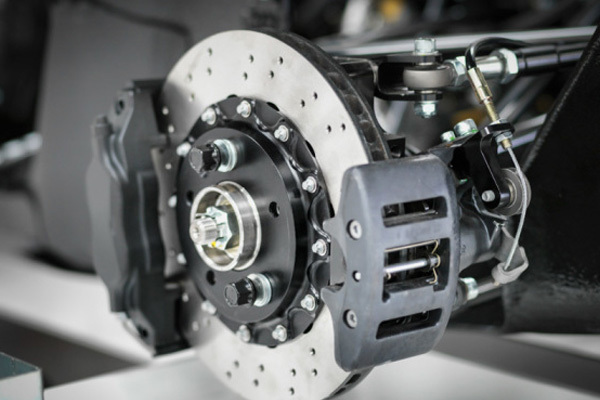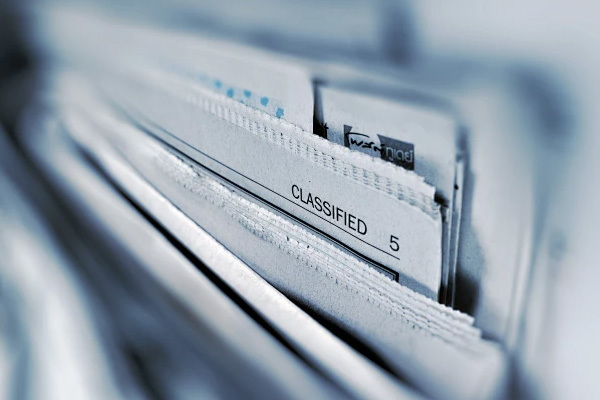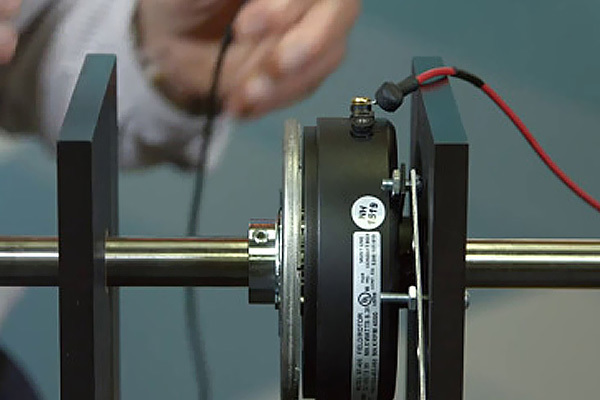
Share
- Details
-
For centering, a centering ring is fixed on the half clutch of the driving shaft, and the driven shaft can rotate freely in the centering ring. The operation of the clutch can be carried out by manual lever, hydraulic, pneumatic or electromagnetic suction. The number of teeth is generally taken from 3 to 60. The teeth on the end faces of the two halves of the clutch are fitted or disconnected to achieve the clutch of the main and driven shafts. The teeth are rectangular, trapezoidal, triangular, serrated and spiral. Due to the large number of teeth involved in the chimerism at the same time, the bearing capacity is high and the scope of application is wide. The overall dimensions are small, the transmission torque is large, the driving and driven shafts have no relative sliding after engagement, and the transmission ratio remains unchanged. However, there is impact during joint, which is suitable for static joint or joint when the speed difference is small (the speed difference of rectangular teeth ≤ 10r/min, and the rest of the teeth ≤ 300r/min). It is mainly used for the transmission shaft system of low-speed machinery. There are triangular, trapezoidal, zigzag. Triangular tooth transmission, small torque, tooth number 15-60. Trapezoidal and serrated teeth can transmit large torque, and the number of teeth is 3-15. Trapezoidal teeth can compensate for the tooth side clearance after wear. The serrated teeth can only work in one direction. Due to the large axial component force when reversing, the clutch will be forced to disperse itself to make the load evenly distributed. The jaw clutch has a simple structure, a small outer contour size, and can transmit a large torque, so it is widely used. However, the jaw clutch should only be combined when the two shafts do not rotate and the speed difference is very small, otherwise the teeth may be affected. And break. The common material of the jaw clutch is low carbon alloy steel (such as 20Cr, 20MnB), and the hardness of the tooth surface reaches HRC56-62 after carburizing and quenching. Sometimes low alloy steel (40Cr, 45MnB) is also used, and the hardness reaches HRC48-52 after surface quenching.
Main performance parameters
Main Technical DataSpecifications
SizeRated transmission torque
Rated Transmitting Torque(N.m)Rated voltage
Rated Voltage
D.C(V)Coil power consumption (20 ℃)
Coil power(20℃) WMaximum allowable combined speed
Max Engagement Speed
r/minMaximum allowable speed
Max Allowed Speed
(r/min)5A
50
24
21
36
4500
5AN
50
24
26
36
4500
10A
100
24
28
30
4000
25A
250
24
32
20
3500
Installation Schematic
Installation Diagram

Outline and installation dimensions
Shape and Installation DimensionsSpecifications
ModelRadial Dimensions
Axial Dimensions
Brush model
Brush ModelD1
D2
D3
D4
Φ
h
e
M
L
L1
L2
L3
L4
Δ
5A
87
41
45
86
28
31.3
8
3-M4 Deep 8
45
5
8
8
25.2
0.3
DS-002
5AN
87
—
45
86
28
31.3
8
—
45
5
8
8
26
0.3
10A
94
—
45
94
40
43.3
12
—
50
5
8
8
30
0.5
25A
125
70
75
125
40
43.3
12
3-M5 Deep 10
55.5
4
9
12
30.3
0.5
DS-001
DLY2 series positioning jaw electromagnetic clutch
Classification
Keyword
Jaw electromagnetic clutch
- Details
-
For centering, a centering ring is fixed on the half clutch of the driving shaft, and the driven shaft can rotate freely in the centering ring. The operation of the clutch can be carried out by manual lever, hydraulic, pneumatic or electromagnetic suction. The number of teeth is generally taken from 3 to 60. The teeth on the end faces of the two halves of the clutch are fitted or disconnected to achieve the clutch of the main and driven shafts. The teeth are rectangular, trapezoidal, triangular, serrated and spiral. Due to the large number of teeth involved in the chimerism at the same time, the bearing capacity is high and the scope of application is wide. The overall dimensions are small, the transmission torque is large, the driving and driven shafts have no relative sliding after engagement, and the transmission ratio remains unchanged. However, there is impact during joint, which is suitable for static joint or joint when the speed difference is small (the speed difference of rectangular teeth ≤ 10r/min, and the rest of the teeth ≤ 300r/min). It is mainly used for the transmission shaft system of low-speed machinery. There are triangular, trapezoidal, zigzag. Triangular tooth transmission, small torque, tooth number 15-60. Trapezoidal and serrated teeth can transmit large torque, and the number of teeth is 3-15. Trapezoidal teeth can compensate for the tooth side clearance after wear. The serrated teeth can only work in one direction. Due to the large axial component force when reversing, the clutch will be forced to disperse itself to make the load evenly distributed. The jaw clutch has a simple structure, a small outer contour size, and can transmit a large torque, so it is widely used. However, the jaw clutch should only be combined when the two shafts do not rotate and the speed difference is very small, otherwise the teeth may be affected. And break. The common material of the jaw clutch is low carbon alloy steel (such as 20Cr, 20MnB), and the hardness of the tooth surface reaches HRC56-62 after carburizing and quenching. Sometimes low alloy steel (40Cr, 45MnB) is also used, and the hardness reaches HRC48-52 after surface quenching.
Main performance parameters
Main Technical DataSpecifications
SizeRated transmission torque
Rated Transmitting Torque(N.m)Rated voltage
Rated Voltage
D.C(V)Coil power consumption (20 ℃)
Coil power(20℃) WMaximum allowable combined speed
Max Engagement Speed
r/minMaximum allowable speed
Max Allowed Speed
(r/min)5A
50
24
21
36
4500
5AN
50
24
26
36
4500
10A
100
24
28
30
4000
25A
250
24
32
20
3500
Installation Schematic
Installation Diagram

Outline and installation dimensions
Shape and Installation DimensionsSpecifications
ModelRadial Dimensions
Axial Dimensions
Brush model
Brush ModelD1
D2
D3
D4
Φ
h
e
M
L
L1
L2
L3
L4
Δ
5A
87
41
45
86
28
31.3
8
3-M4 Deep 8
45
5
8
8
25.2
0.3
DS-002
5AN
87
—
45
86
28
31.3
8
—
45
5
8
8
26
0.3
10A
94
—
45
94
40
43.3
12
—
50
5
8
8
30
0.5
25A
125
70
75
125
40
43.3
12
3-M5 Deep 10
55.5
4
9
12
30.3
0.5
DS-001
Product inquiry

The company has a product research and development department composed of experts, senior engineers and other professional and technical personnel. It is engaged in research and development and has perfect research and development test equipment. At present, the products reach more than 100 series of nearly 1,000 specifications, and the force distance ranges from 0.1N. m ~ 250000N.m. The company has been rated as a high-tech enterprise by the state for more than ten consecutive years, and a number of R & D projects have been established locally and have received municipal financial support.
Service Hotline:
Sales Department: Xu Jie
Sales Phone:+86-22-26616372, +86-22-26341260, +86 13920613215
Fax: 86-022-26616580
Market Development Department: Li Shuo
Marketing Department Telephone:+86-22-26614130
Technology Department: Yue Chao
Technical Department Telephone:+86-22-26222775 ,+86 18602228435
QQ:1059237223 1611412939
Company Website:www.tjlhq.com
Enterprise E-mail:xzm@tjlhq.com
Company address: No.6, Zone B, South Jifeng Road, Hongcang City Industrial Park, Yanji Daohong, Beichen District, Tianjin




